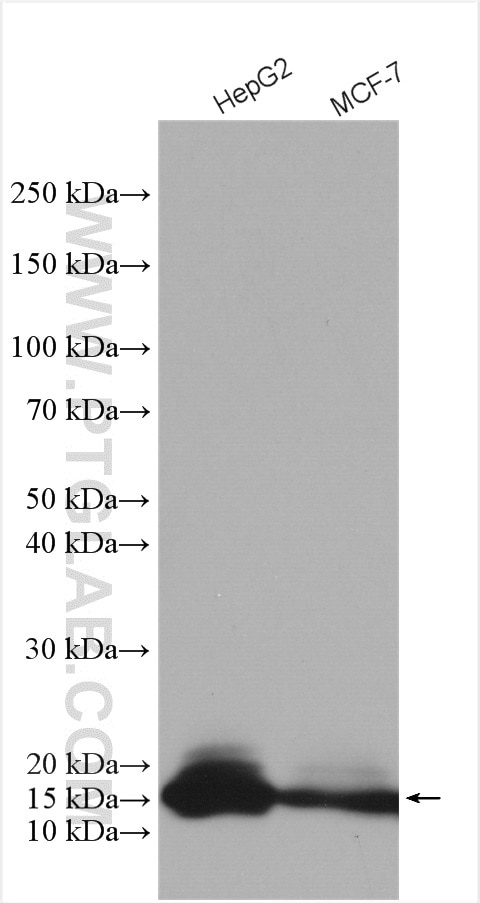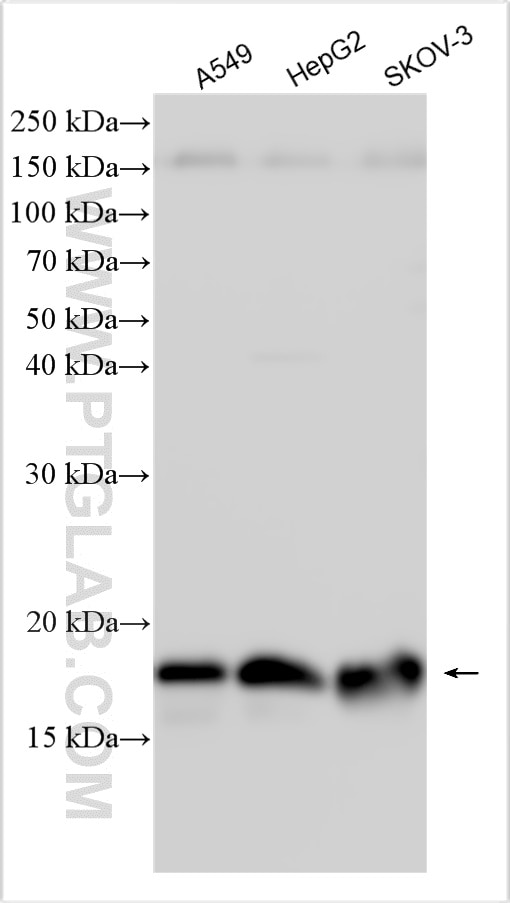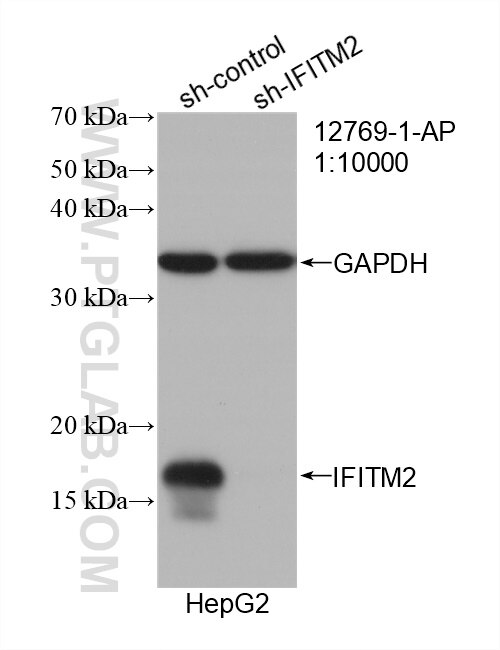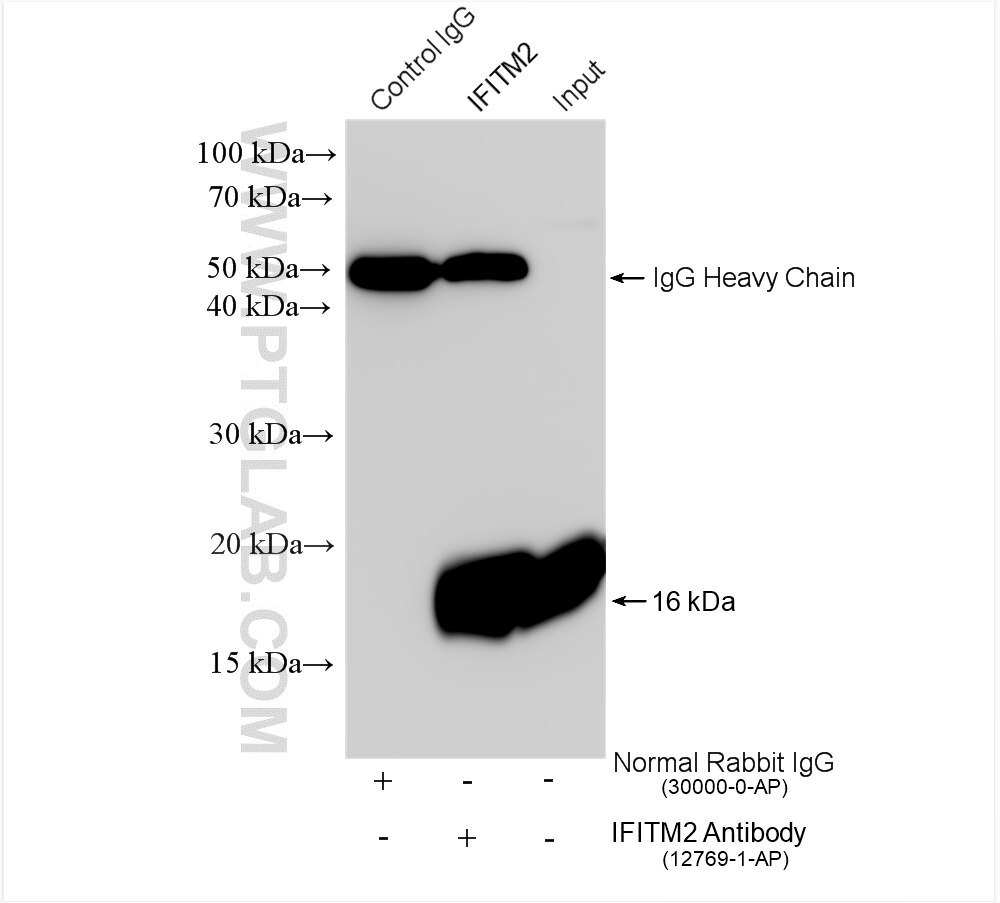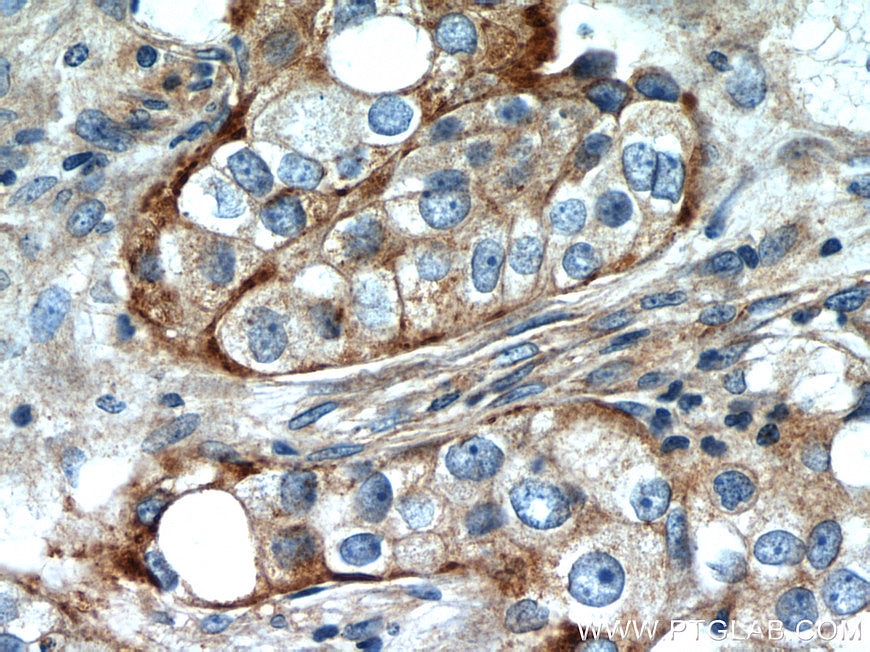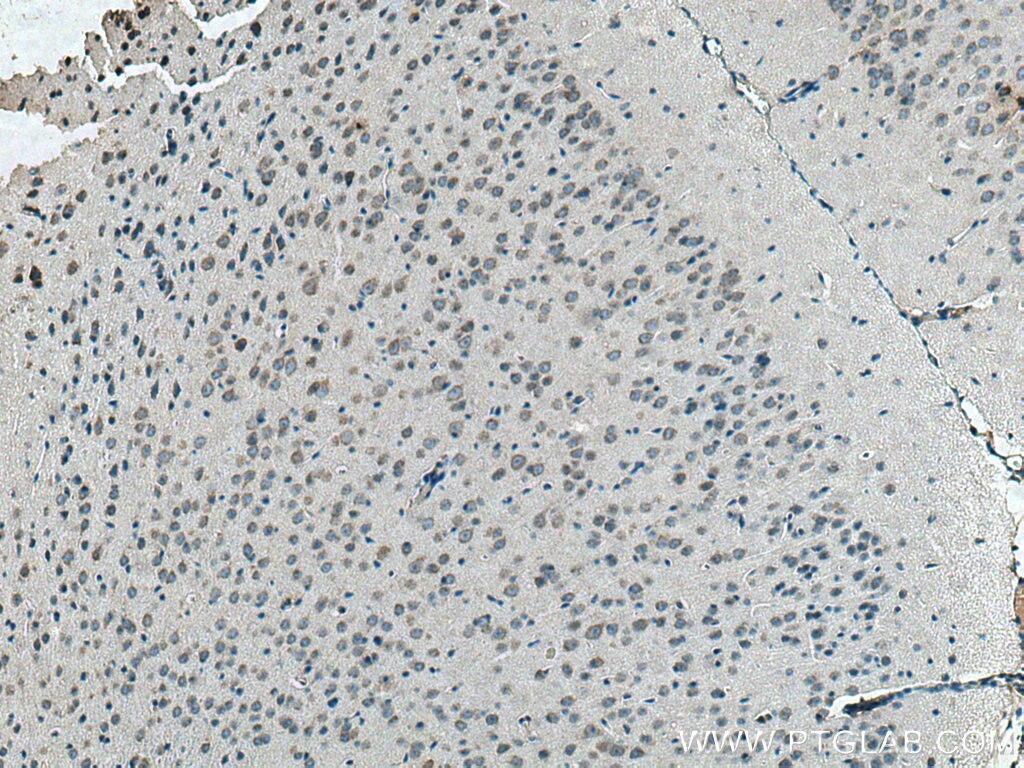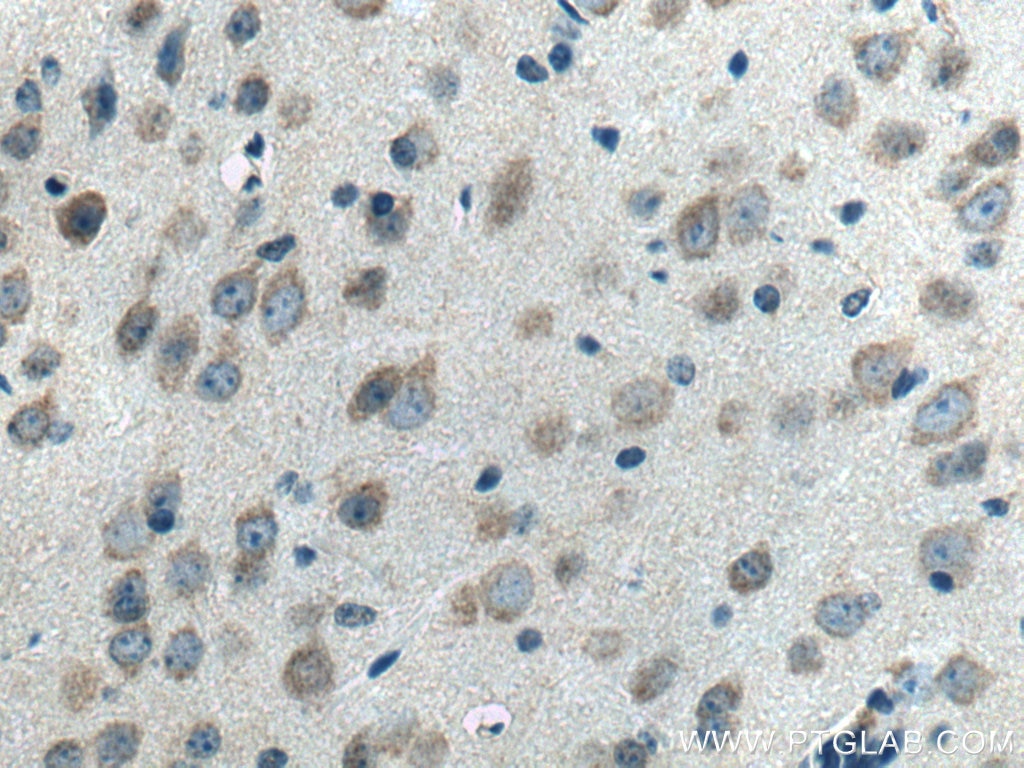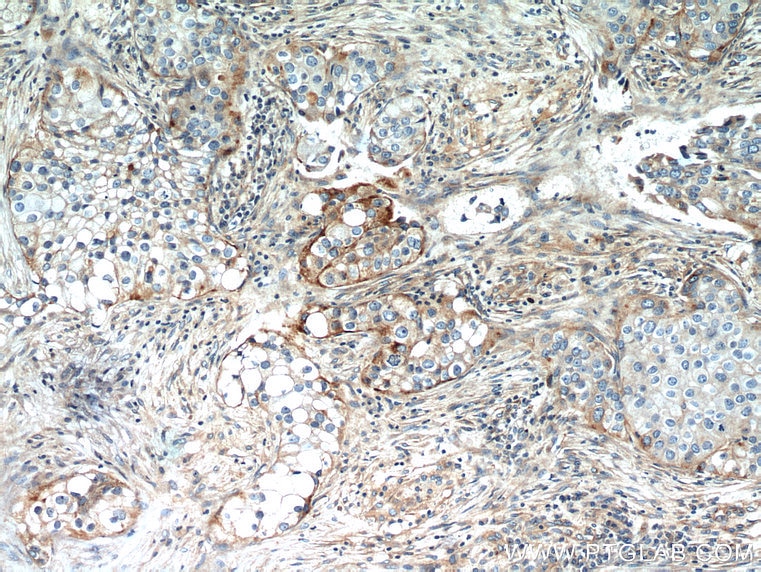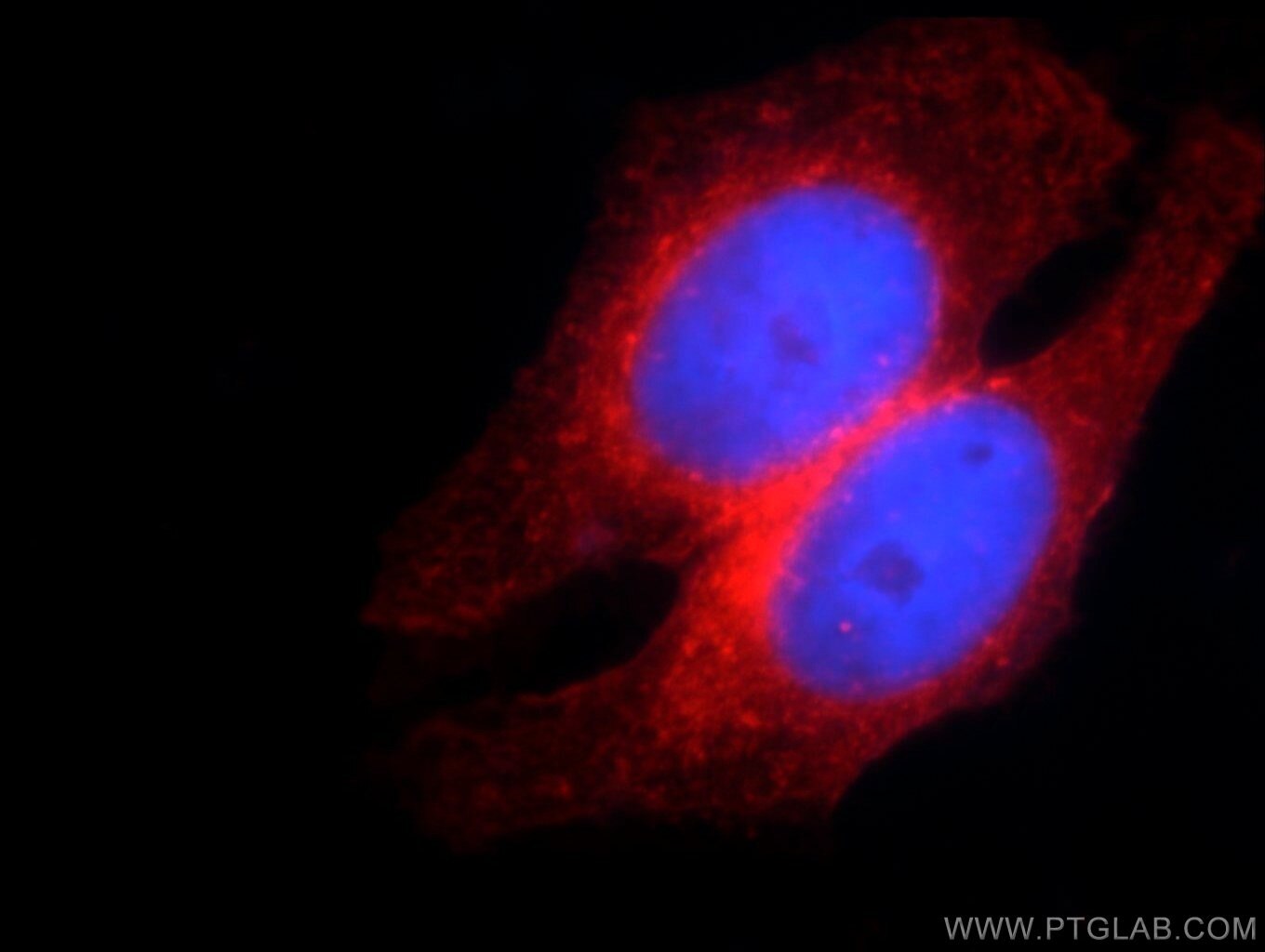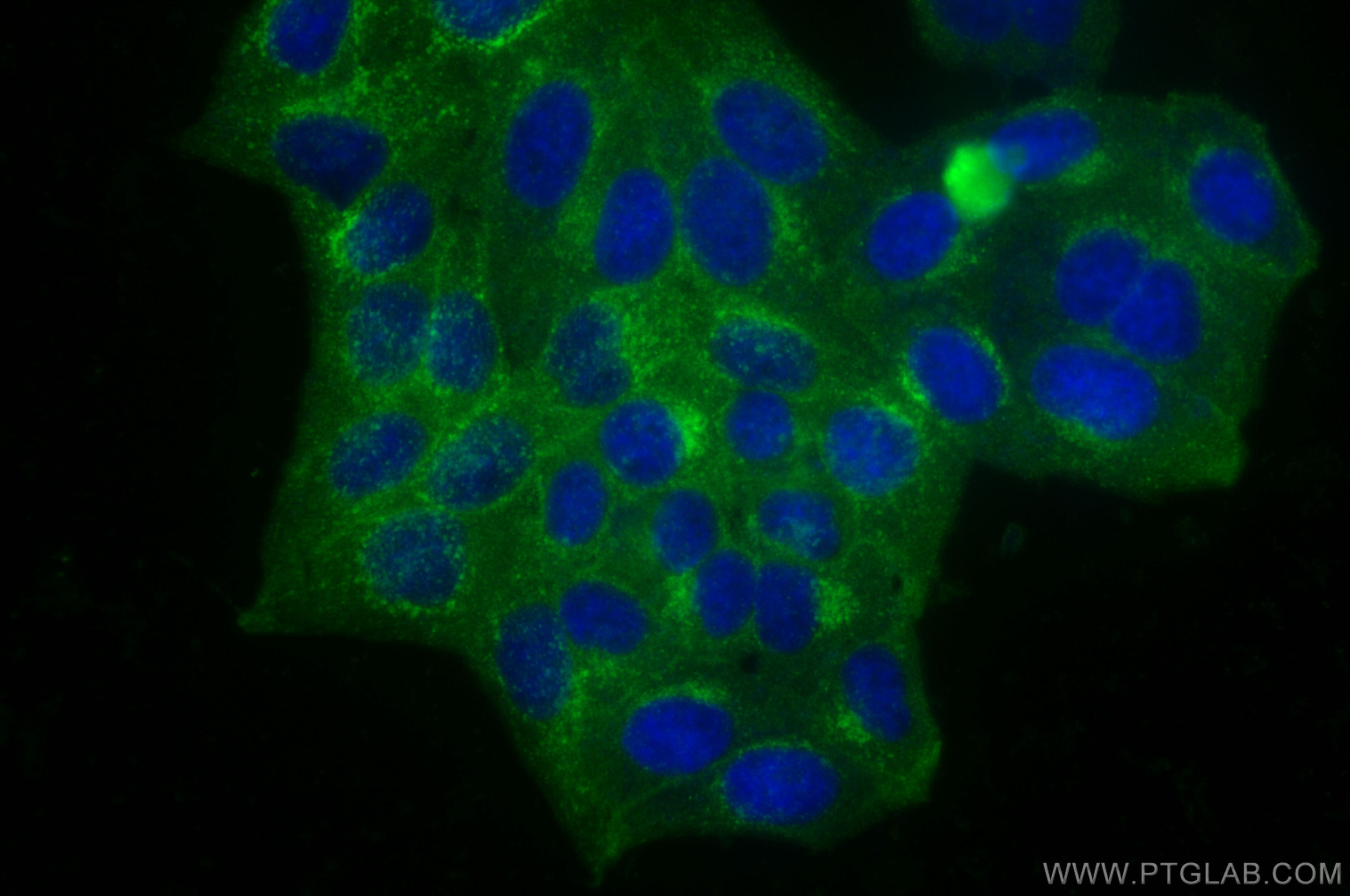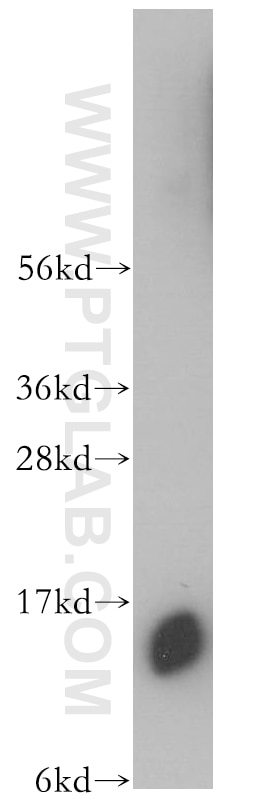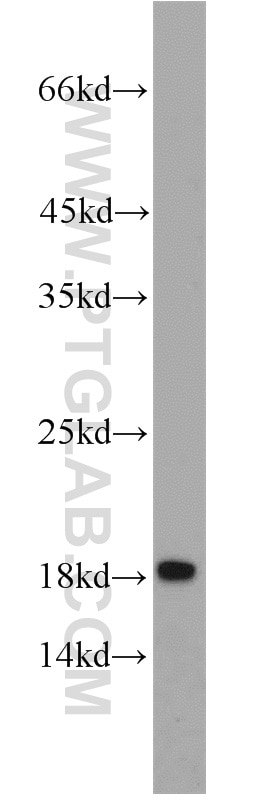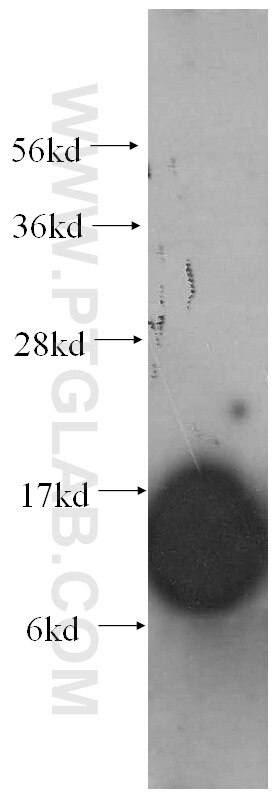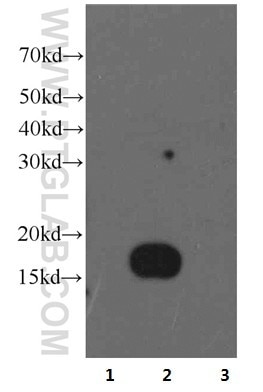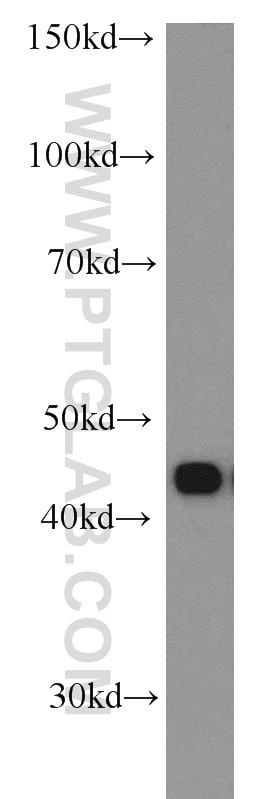- Phare
- Validé par KD/KO
Anticorps Polyclonal de lapin anti-IFITM2
IFITM2 Polyclonal Antibody for WB, IHC, IF/ICC, IP, ELISA
Hôte / Isotype
Lapin / IgG
Réactivité testée
Humain, souris et plus (1)
Applications
WB, IHC, IF/ICC, IP, ELISA
Conjugaison
Non conjugué
N° de cat : 12769-1-AP
Synonymes
Galerie de données de validation
Applications testées
| Résultats positifs en WB | cellules A549, cellules HepG2, cellules MCF-7, cellules SKOV-3 |
| Résultats positifs en IP | cellules HepG2, |
| Résultats positifs en IHC | tissu de cancer du sein humain, tissu cérébral de souris il est suggéré de démasquer l'antigène avec un tampon de TE buffer pH 9.0; (*) À défaut, 'le démasquage de l'antigène peut être 'effectué avec un tampon citrate pH 6,0. |
| Résultats positifs en IF/ICC | cellules HepG2, |
Dilution recommandée
| Application | Dilution |
|---|---|
| Western Blot (WB) | WB : 1:2000-1:10000 |
| Immunoprécipitation (IP) | IP : 0.5-4.0 ug for 1.0-3.0 mg of total protein lysate |
| Immunohistochimie (IHC) | IHC : 1:20-1:200 |
| Immunofluorescence (IF)/ICC | IF/ICC : 1:200-1:800 |
| It is recommended that this reagent should be titrated in each testing system to obtain optimal results. | |
| Sample-dependent, check data in validation data gallery | |
Applications publiées
| KD/KO | See 12 publications below |
| WB | See 33 publications below |
| IHC | See 1 publications below |
| IF | See 8 publications below |
| IP | See 1 publications below |
| FC | See 4 publications below |
Informations sur le produit
12769-1-AP cible IFITM2 dans les applications de WB, IHC, IF/ICC, IP, ELISA et montre une réactivité avec des échantillons Humain, souris
| Réactivité | Humain, souris |
| Réactivité citée | Humain, porc, souris |
| Hôte / Isotype | Lapin / IgG |
| Clonalité | Polyclonal |
| Type | Anticorps |
| Immunogène | IFITM2 Protéine recombinante Ag3451 |
| Nom complet | interferon induced transmembrane protein 2 (1-8D) |
| Masse moléculaire calculée | 132 aa, 15 kDa |
| Poids moléculaire observé | 15-17 kDa |
| Numéro d’acquisition GenBank | BC009696 |
| Symbole du gène | IFITM2 |
| Identification du gène (NCBI) | 10581 |
| Conjugaison | Non conjugué |
| Forme | Liquide |
| Méthode de purification | Purification par affinité contre l'antigène |
| Tampon de stockage | PBS avec azoture de sodium à 0,02 % et glycérol à 50 % pH 7,3 |
| Conditions de stockage | Stocker à -20°C. Stable pendant un an après l'expédition. L'aliquotage n'est pas nécessaire pour le stockage à -20oC Les 20ul contiennent 0,1% de BSA. |
Informations générales
IFITM2, also named as 1-8D, belongs to the CD225 family. It is an IFN-induced antiviral protein that mediates cellular innate immunity to at least three major human pathogens, namely influenza A H1N1 virus, West Nile virus (WNV), and dengue virus , by inhibiting the early steps of replication. IFITM2 induces cell cycle arrest and mediates apoptosis by caspase activation and in p53-independent manner. It is overexpressed in colon carcinoma. IFITM2 is a novel pro-apoptotic gene that will provide new insights into the regulated cellular pathways to death. IFITM proteins are recently identified as viral restriction factors that inhibit infection mediated by the influenza A virus (IAV) hemagglutinin (HA) protein. Also they serve as important components of the innate immune system to restrict HIV-1 infection. Catalog#12769-1-AP is a rabbit polyclonal antibody produced with full-length of human IFITM2.
Protocole
| Product Specific Protocols | |
|---|---|
| WB protocol for IFITM2 antibody 12769-1-AP | Download protocol |
| IHC protocol for IFITM2 antibody 12769-1-AP | Download protocol |
| IF protocol for IFITM2 antibody 12769-1-AP | Download protocol |
| IP protocol for IFITM2 antibody 12769-1-AP | Download protocol |
| Standard Protocols | |
|---|---|
| Click here to view our Standard Protocols |
Publications
| Species | Application | Title |
|---|---|---|
Cell The IFITM proteins mediate cellular resistance to influenza A H1N1 virus, West Nile virus, and dengue virus. | ||
Cell Host Microbe Resistance of Transmitted Founder HIV-1 to IFITM-Mediated Restriction.
| ||
Cell Host Microbe IFITM Proteins Incorporated into HIV-1 Virions Impair Viral Fusion and Spread.
| ||
Nat Commun IFITM3 restricts virus-induced inflammatory cytokine production by limiting Nogo-B mediated TLR responses | ||
Nat Commun BAG3 promotes pancreatic ductal adenocarcinoma growth by activating stromal macrophages.
|
